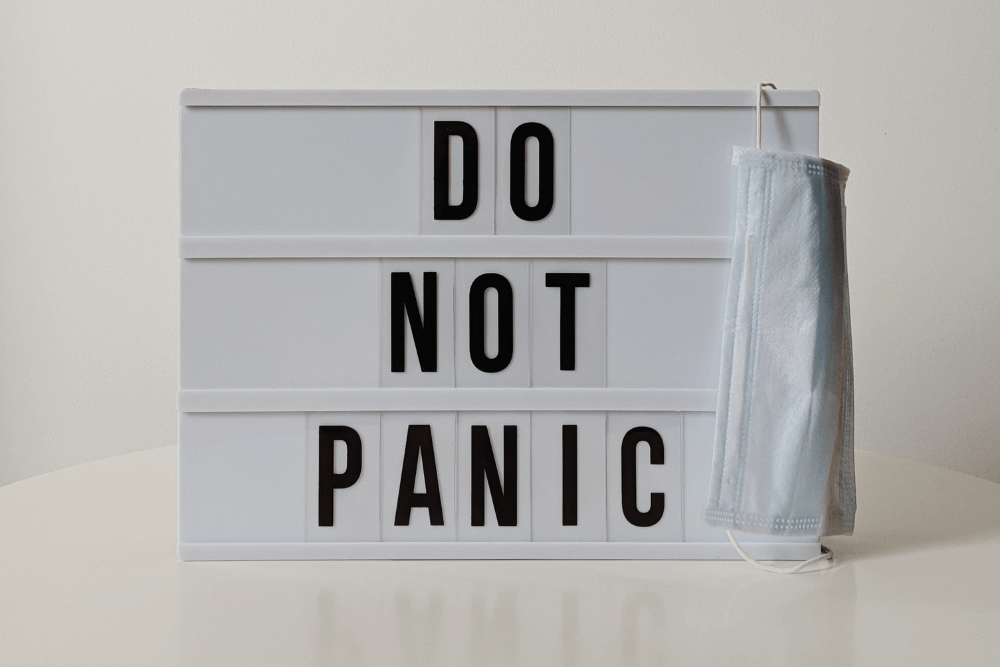
The coronavirus pandemic is taking a physical, emotional, and financial toll on people and businesses around the world. As the world’s leading online retailer, Amazon is in a unique position to continue operating at a high level as it provides customers practicing social distancing the chance to make their purchases without leaving their homes. Amazon sellers that are able to adapt to the coronavirus should be able to weather these difficult times and continue to find success in their business.
There is no one-size-fits-all guide to optimizing your Amazon business practices during the coronavirus outbreak as different industries will all be affected in different ways. But here are five tips that should help your business survive the challenges ahead.

1. Consider recalling some of your inventory
Amazon’s powerhouse FBA service is still chugging along around the world, and sellers who use it would, of course, love to continue to do so. But it’s impossible to guess how operations may be affected in the coming months. An Amazon warehouse in Kentucky was forced to close down in late March due to several workers testing positive for COVID-19. Reports indicate that at least 10 other warehouses across the United States have had workers test positive for the virus.
It’s possible that the spread of the coronavirus will level out and won’t have any major effect on Amazon’s fulfillment centers. But it’s also possible that if it continues to spread, Amazon or state governments could close more warehouses and leave some of your products in limbo. Because of the uncertainty around what’s to come, you can cover your bases by having a percentage of your inventory returned to you. This way you still have FBA coverage while the warehouses are operational but also have immediate access to some of your products if any FBA issues arise.

2. Start selling items Fulfilled by Merchant
There is no better time than now to start selling your Amazon products Fulfilled by Merchant. By taking the fulfillment of your goods into your own hands, you won’t have to worry about the status of Amazon’s warehouses. You will be able to keep your products in stock to ensure that you don’t lose out on the rankings that you’ve worked hard to acquire. We recently covered some tips on making the switch to Amazon merchant-fulfilled.
If you want to keep your “Prime” badge, you could opt into Merchant Fulfilled Prime. Just keep in mind that Amazon has strict FBM Prime guidelines to follow, so if you are new to fulfilling your own orders, you may want to stick to standard Fulfilled by Merchant.

3. Craft meaningful email messages using FeedbackWhiz
Now is a good time to re-visit your FeedbackWhiz automated email templates. FeedbackWhiz users have generated all sorts of incredible email templates to go out to their customers after a sale is made. These templates give Amazon sellers the chance to show off their brand and to create a rapport with the customer.
That rapport could be built even deeper with a more personalized message that addresses the hardships that many families are going through during this coronavirus outbreak. Even the simple gesture of adding a paragraph to explain how much you truly value their business during these hard times can express your gratitude and make your customers feel appreciated. And building rapport in the initial email will make it more likely that the buyer leaves a product review when you request it in your follow-up email.

4. Don’t panic or overreact to the current situation
Coverage on COVID-19 is all-encompassing at this point in time, and that isn’t likely to change any time soon as more cases continue to develop and the economic impact that these nationwide shutdowns are having keep unfolding. It’s difficult to see the light at the end of the tunnel right now and to imagine a world in which toilet paper is readily available again. But that doesn’t mean that you should drop your current business model and start selling hand sanitizers instead.
Business decisions should always be made with the future in mind. Knee-jerk reactions and emotional responses will only lead to issues down the road when you need to readjust all over again. Take a deep breath and remember that this crisis will pass. Before making any big decisions, consider the long-term ramifications.
For example, many Amazon sellers will be cutting back on advertising in a state of panic over the economy. If you can afford to and it makes sense for your business, now is actually a great time to maintain or even add to your advertising budget. Some keywords may be less competitive and easier to optimize for, which could lead to an increase in sales rankings and product reviews that will pay even more dividends in the future.

5. Think of ways to market your brand in a positive light
Major companies like Starbucks and Krispy Kreme are earning kudos for offering free coffee and free donuts to medical workers and other first responders fighting the coronavirus. Crocs are giving out free pairs of shoes to first responders. These are just a few examples of companies gaining good press for their actions during these unprecedented times.
On the other hand, a company like GameStop that deemed itself essential and continued to force its employees to work against government orders has been slammed for its behavior. How you present your business during this crisis could have significant effects on your short-term and long-term sales.
Consider social media giveaways or discounts to first responders, or even to all of your customers to show that you appreciate them and want to help them get through this. Or perhaps you can share inspirational stories or spend more time than usual engaging your customers, asking them how they are passing the time in quarantine or offering helpful advice. As people around the world are forced to keep their distance from one another, kindness and communication online will go a long way in making people happy and showing that you and your brand care.
New customers can try FeedbackWhiz for 30 days for free, no credit card required.

0 Comments